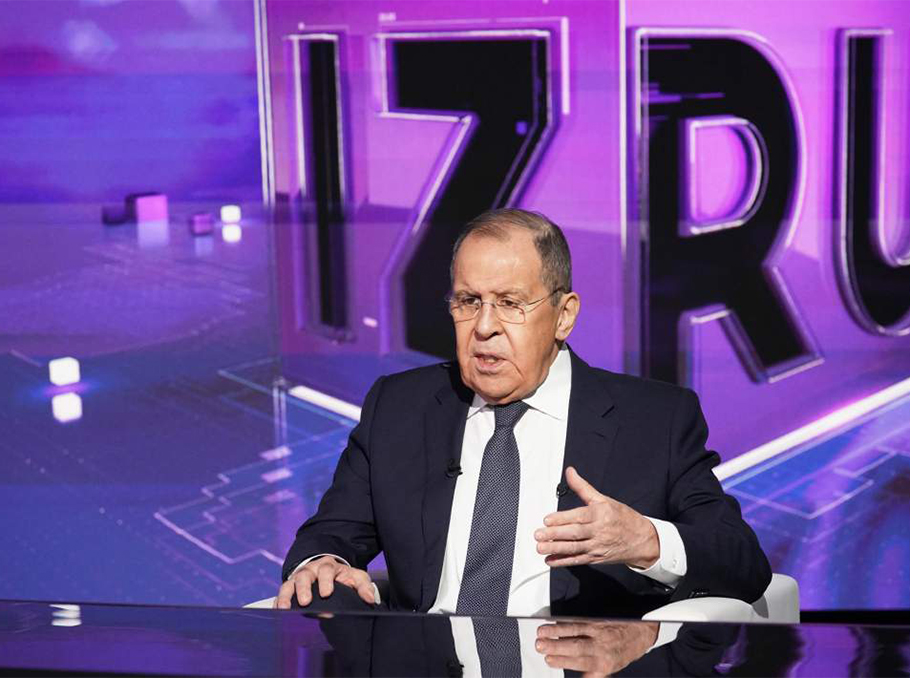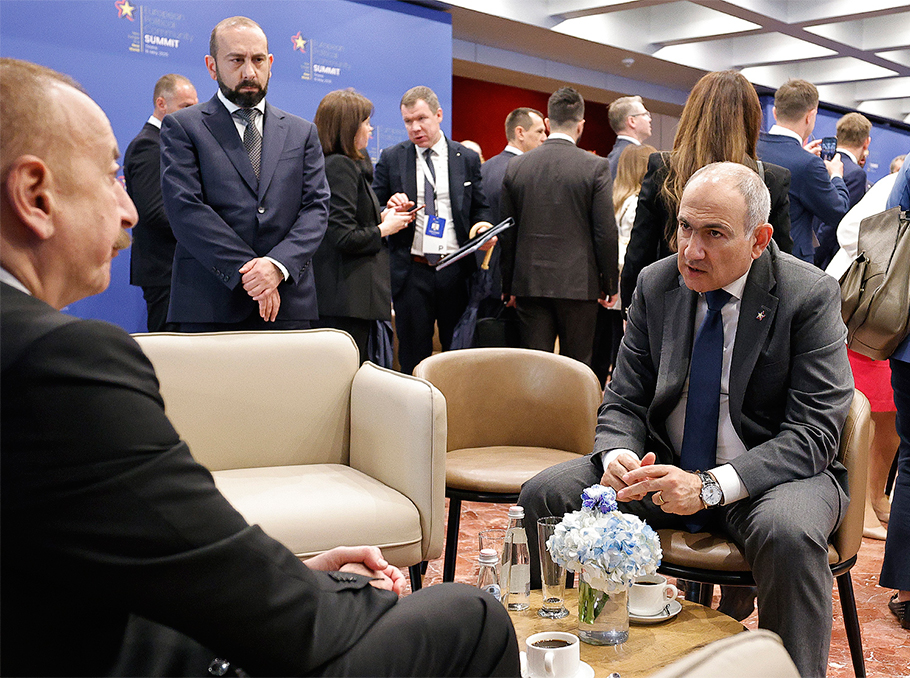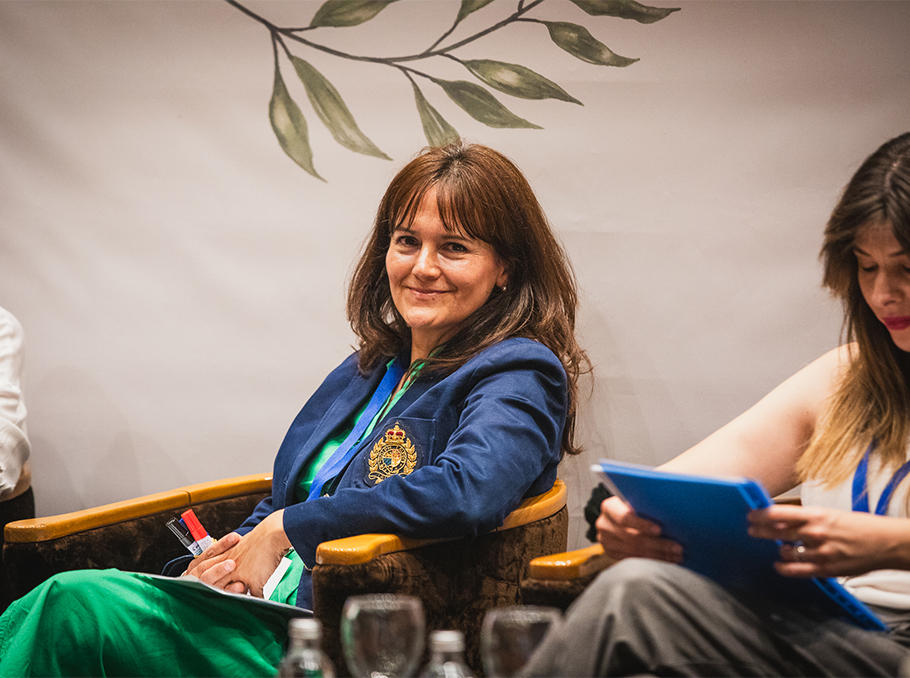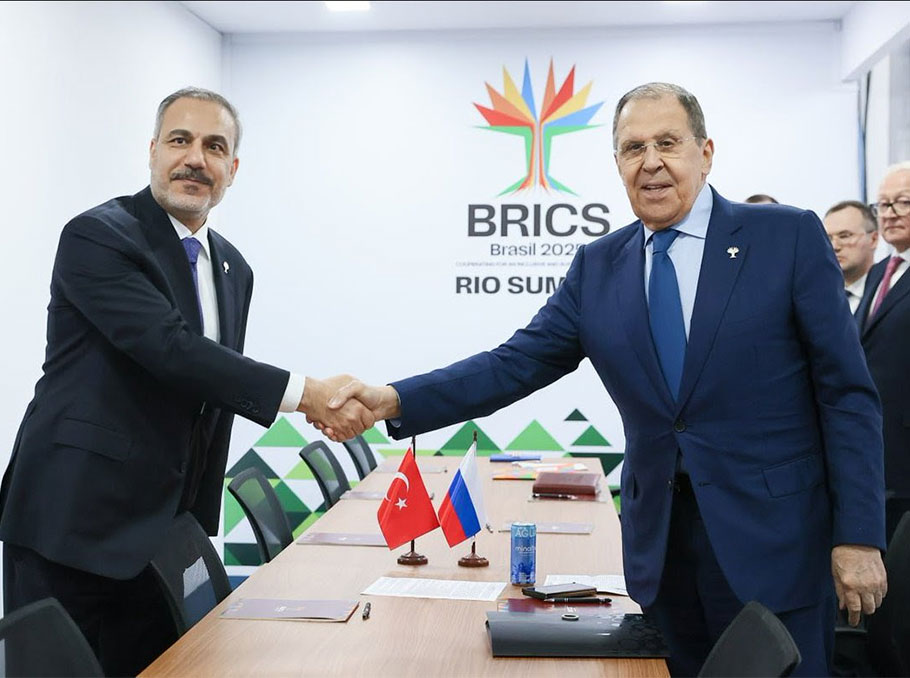Yerevan /Mediamax/. Russian Foreign Minister Sergey Lavrov said that “the situation in Armenia does not inspire optimism.”
“The Armenian leadership under far-fetched pretexts, distorting the history of the past three and a half years, is deliberately ruining relations with the Russian Federation,” Lavrov said in an interview with Izvestia.
“It is the CSTO that has repeatedly defended Armenia’s interests in difficult situations. In 2021, the CSTO was ready to send a peacekeeping mission to that country to ease the tension between Yerevan and Baku. Moreover, the mission’s mandate was fully agreed upon at a ministerial meeting in the Armenian capital. We sat up till night, and everything was approved. In the morning, when the presidents and prime ministers met, Nikol Pashinyan stated that there was no consensus. A few days later, he “called for” the similar peacekeeping mission by the European Union. He promised Azerbaijan that it would last only for two months. And two months later, ignoring Baku, the EU doubled the number of personnel. Now more servicemen from Norway, Canada and the United States are being sent there, turning the EU mission into a mission of the North Atlantic Alliance,” Lavrov said.
“Pashinyan, his team and the Armenian parliamentary leadership have distorted the history of the last few years. During his time in opposition he leaded a movement he created, (everyone knew he had connections with the Soros Foundation), declaring withdrawal from the CSTO and the EAEU. He gathered crowds in the streets under this slogan and demanded elections. At the same time, he declared that if he was not elected, he would “raise” the people. Democracy in its highest manifestation.
After Pashinyan became Prime Minister, the Russian President met with him on several occasions. He emphasized that we would be guided not by previous statements, but by the way the Armenian leadership would build relations with the Russian Federation. In response, it was said that the CSTO and the EAEU remain fundamentally important structures for Armenia’s security, the development of the country’s economy and the prevention of its isolation in the South Caucasus.
This was the course of relations in the years before the conflict between Azerbaijan and Armenia erupted in 2020. At that time, Pashinyan appealed to Putin as an ally of Russia and a member of the CSTO. Our president negotiated with the leaders of Yerevan and Baku night after night, to stop this war. Then trilateral agreements were reached.
Meanwhile, the European Union was “dragging” Armenians and Azerbaijanis into its fold. Pashinyan was the main proponent of the idea of working with the EU and the United States. They regularly traveled there to the detriment of meetings planned on the territory of the Russian Federation. In 2022 in Prague, at the summit of the “European political community,” he and the President of Azerbaijan, in the presence of the President of the European Council Charles Michel, signed a document that Karabakh is Azerbaijan. Nobody informed us. The President of Russia told the Prime Minister of Armenia at the next meeting that we were surprised by their decision.
No explanations were provided. Pashinyan has always asked us not to forget that in parallel with all our efforts of the past three years, the issue of the status of Nagorno-Karabakh must necessarily be resolved. We were engaged in this. But when he himself signed that this territory is part of Azerbaijan in accordance with the administrative borders of the USSR era, the issue of status was dropped.
When the people of Karabakh began to leave, Pashinyan asked the Russian President why he abandoned them. Putin replied that it was the Armenian Prime Minister who decided that they were no longer citizens or claimed any other citizenship than Azerbaijan.
I also talked to Pashinyan when I traveled to various meetings in Yerevan. It seemed to me that he still understands the benefits for Armenia from continuing allied relations with the Russian Federation, from cooperation within the CSTO and the EAEU. However, now Armenian officials in the Armenian Security Council and in the Parliament are openly advocating for a stronger reliance on the European Union, claiming that the CSTO fails to fulfill its obligations to Armenia. That is, in fact, “the circle is closing”. The Armenian leadership is beginning to express ideas similar to those with which Pashinyan formed his movement. I am sure that this does not serve the interests of the Armenian people. It does not meet our interests in terms of historical friendly ties with Armenians, with the huge Armenian diaspora living in Russia, and in terms of stability in the South Caucasus,” Lavrov said.



























Comments
Dear visitors, You can place your opinion on the material using your Facebook account. Please, be polite and follow our simple rules: you are not allowed to make off - topic comments, place advertisements, use abusive and filthy language. The editorial staff reserves the right to moderate and delete comments in case of breach of the rules.